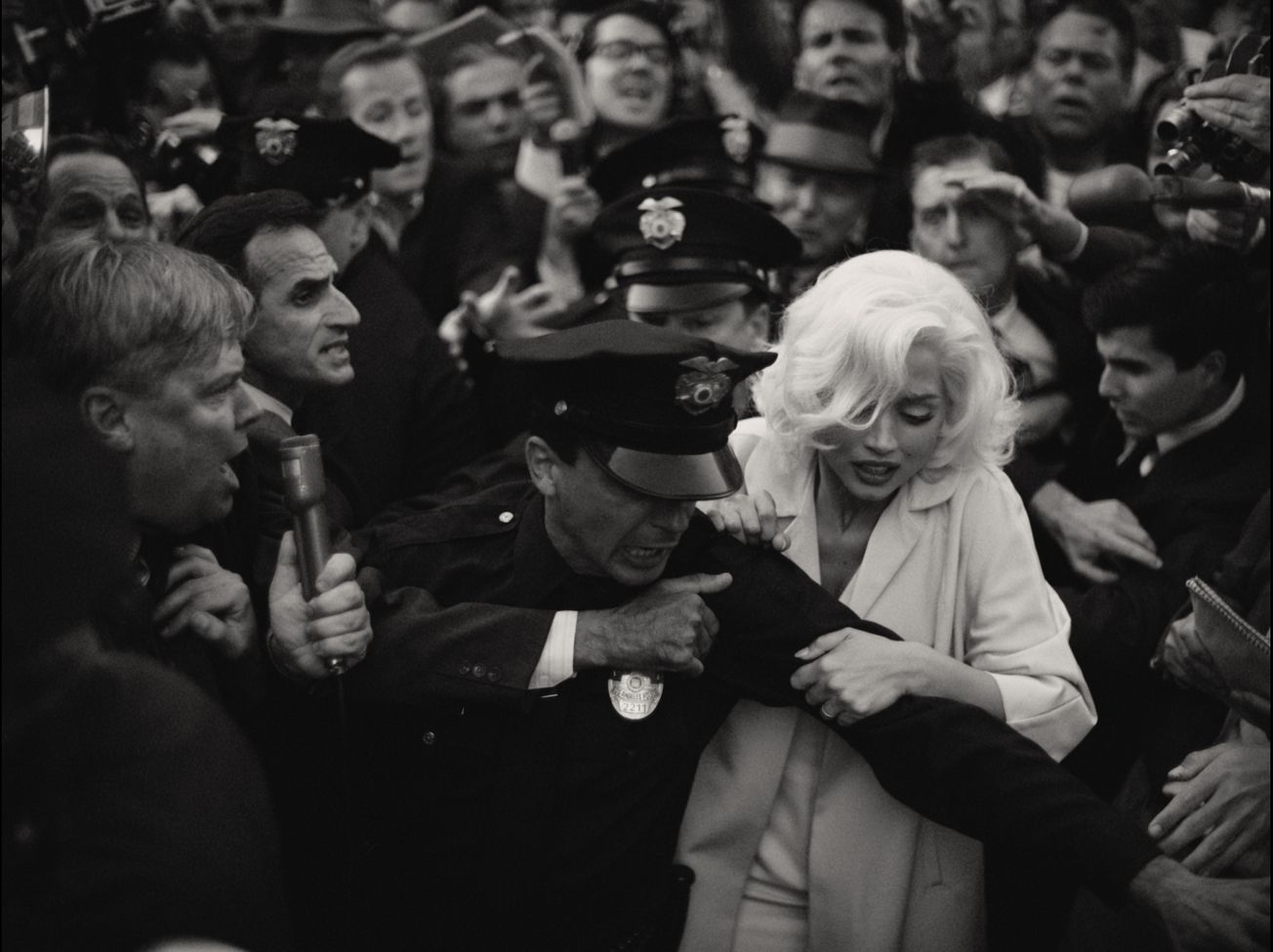By Molly Grogan, Third Year, English
Andrew Dominik’s Blonde is horrifying, in many senses of the word. It should not be mistaken for a biopic, because the book by Joyce Carol Oates- upon which the film is loosely based- is not meant to be a work of biography. It is instead a speculative reimagining of Norma Jean Baker’s life and the persona of Marilyn Monroe, which haunted and terrorised her as she rose to fame.
It’s undoubtedly a psychological horror: bizarre, eerie, and disturbing for viewers who expected it to be anything but another attempt at re-exploring the over-exploited tragedy of her life. But what is worse than the treatment of her sexuality, painting her as a meek, childlike ingenue who seems ready and willing to be naked at any given moment, is that the film is directed by a man.
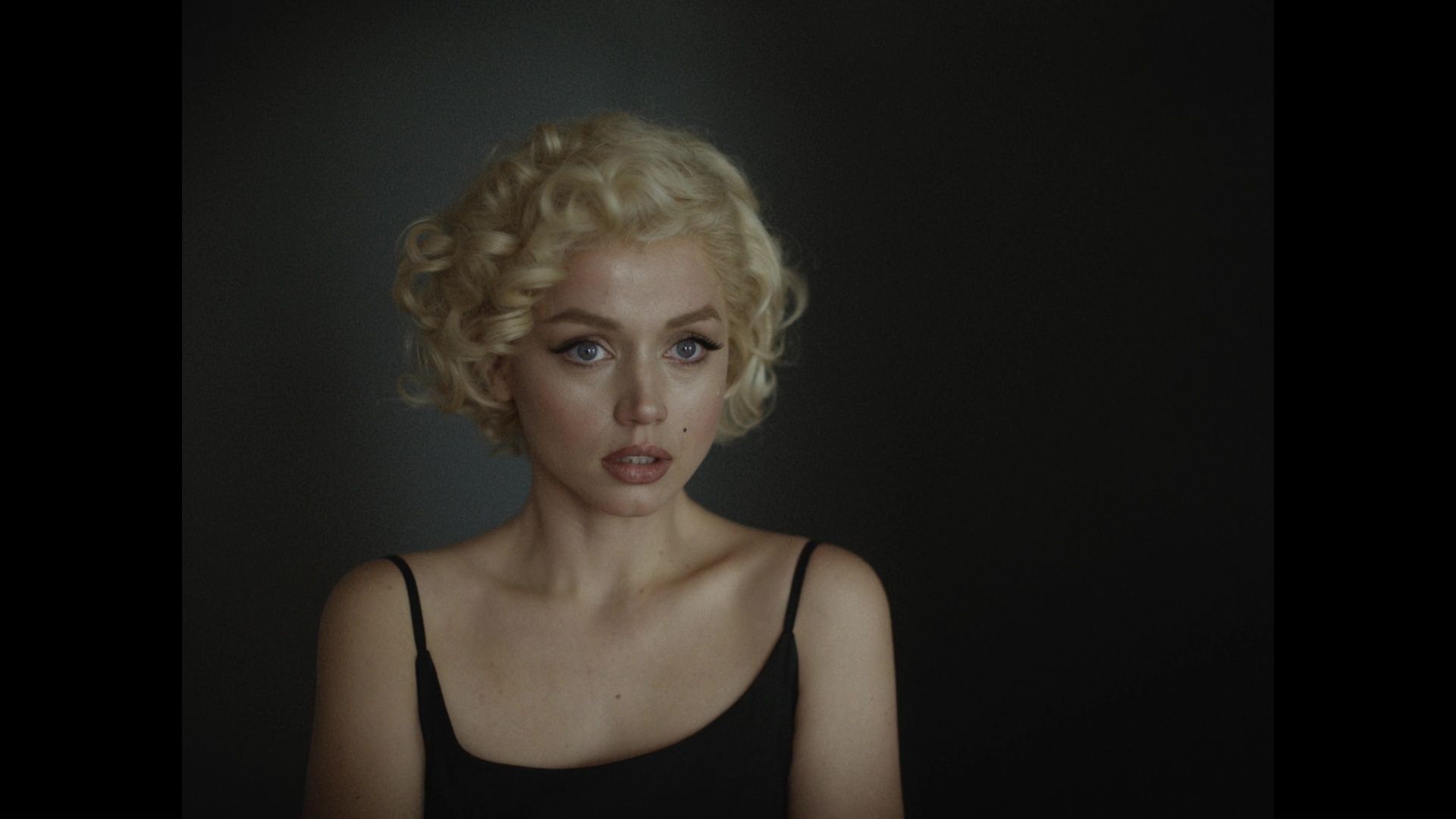
Where does this obsession with understanding Marilyn Monroe come from? Why does the cultural zeitgeist feel such an instinctual impulse to uncover or expose her life? Why won’t we let her lie peacefully? It obviously has something to do with our broader attraction to her, our strange insistence that she is a sex symbol that somehow represents modern culture.
There is this sense that she, existing now in the limitless abyss of the internet, belongs to us in some way. That we deserve to know what really happened, who she slept with, and how this may have led to her untimely death. It’s perverse and voyeuristic.
But it is celebrity culture; the mania that repeats again and again, building myth and magic around the people we just happen to watch on screen. Although Dominik aspires to unpack this through ambiguity and artsy shots, his film fails to land, I would suggest, on account of this very obsession.
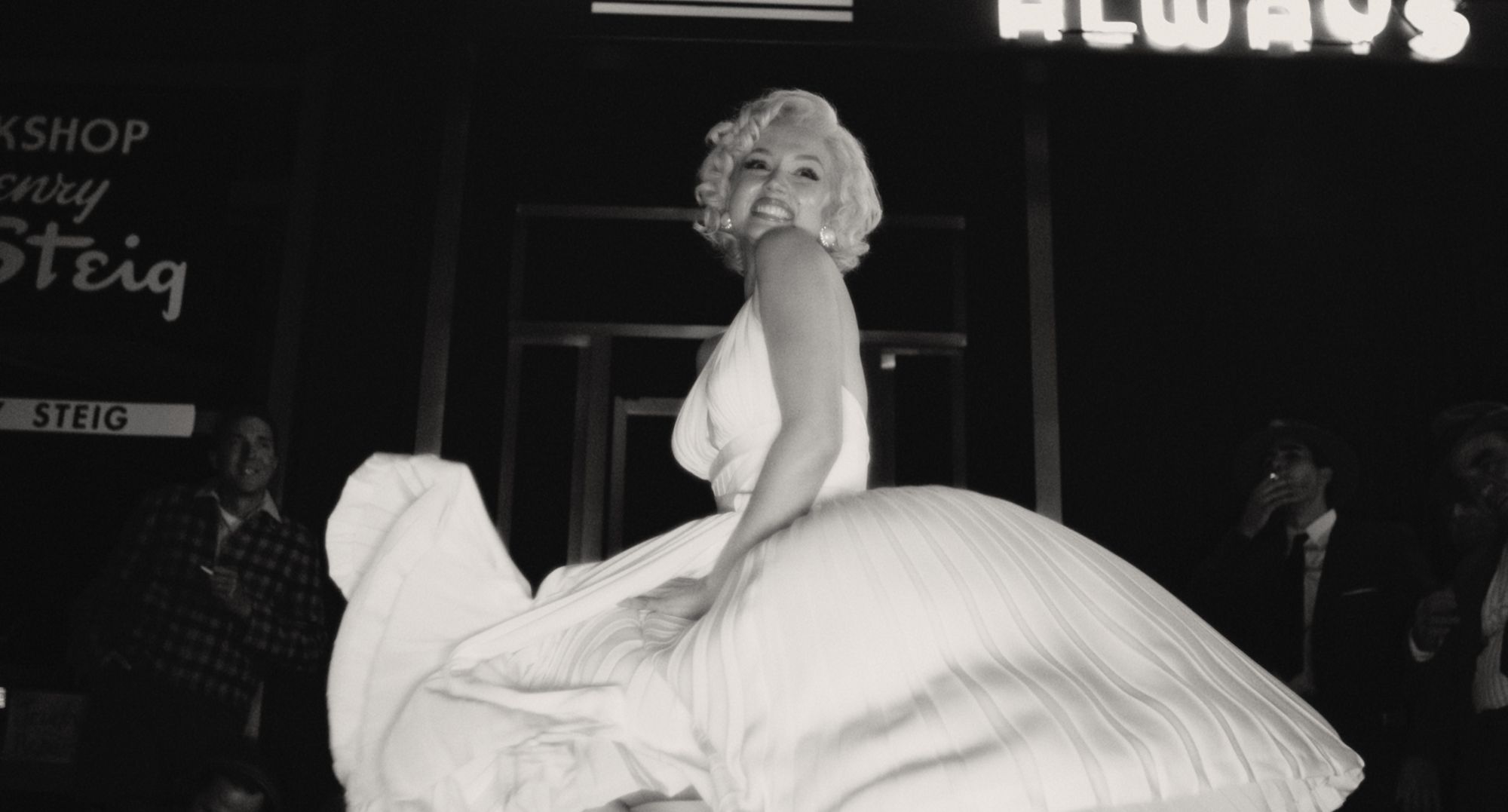
The moments where audiences of Blonde might expect there to be glamour, a sweeping soundtrack, humour, or a happy ending are instead given a raw, unfiltered, uncomfortable truth. Piercing shrieks, falling tears, distressing images; a woman suffering, all over again, for the benefit of us viewers to sit and observe from the comfort of our sofas. All for entertainment.
One would hope that this is at least meant to speak to the exploitative nature of fame, especially Monroe’s own. But, without consistency of form or focus, it just feels wasted.
Between blaming her childhood trauma, abuse suffered in adult life, and her own personal choices (as it felt Dominik occasionally veered towards), any specific tragedy quickly becomes too difficult to keep track of. It all seems too disturbing to contemplate.
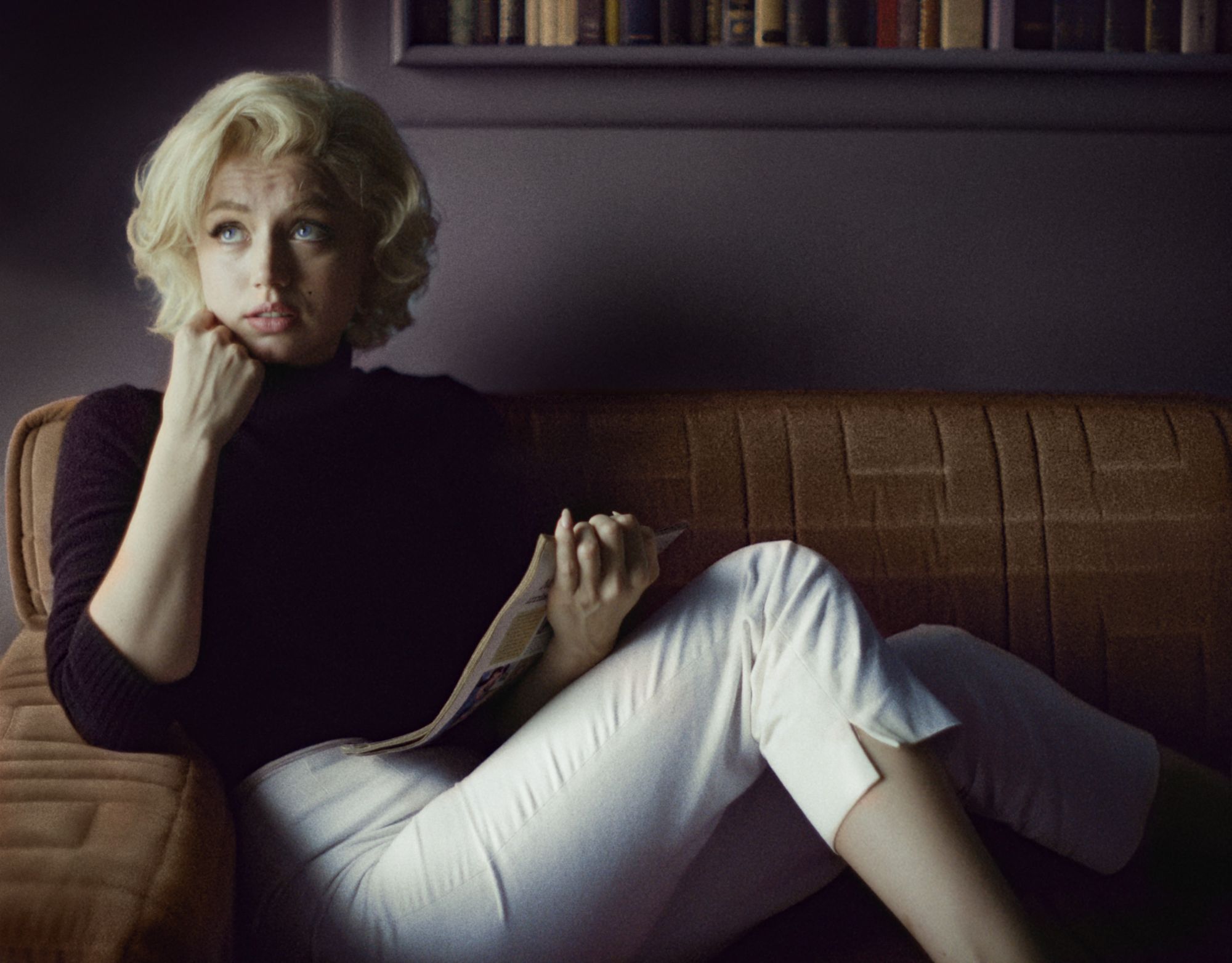
At times, Dominik’s attempt to separate Monroe from Norma Jean felt overdramatic and undermined any degree of agency she may have had. She was a machine, it seemed to suggest, controlled by the industry and her own girlish naivety. Her dumbness. A narrative I thought we were working so hard to unwrite.
But if there is one thing that I liked (and I knew I would), it was Ana De Armas’ flawlessly uncanny performance. Down to the minute facial expressions and manners of speech (despite De Armas’s own native Cuban accent), she evokes Marilyn’s essence without force. I spent many scenes, mouth agape, trying to work out if it was archive footage of the real, inimitable Marilyn, or De Armas’s reproduction.
Adrien Brody also does well to portray the melancholy Arthur Miller, resulting in chemistry with De Armas that makes their unlikely real-life relationship feel totally possible, as though the audience were a fly on the wall in the dimly lit restaurant tristes.
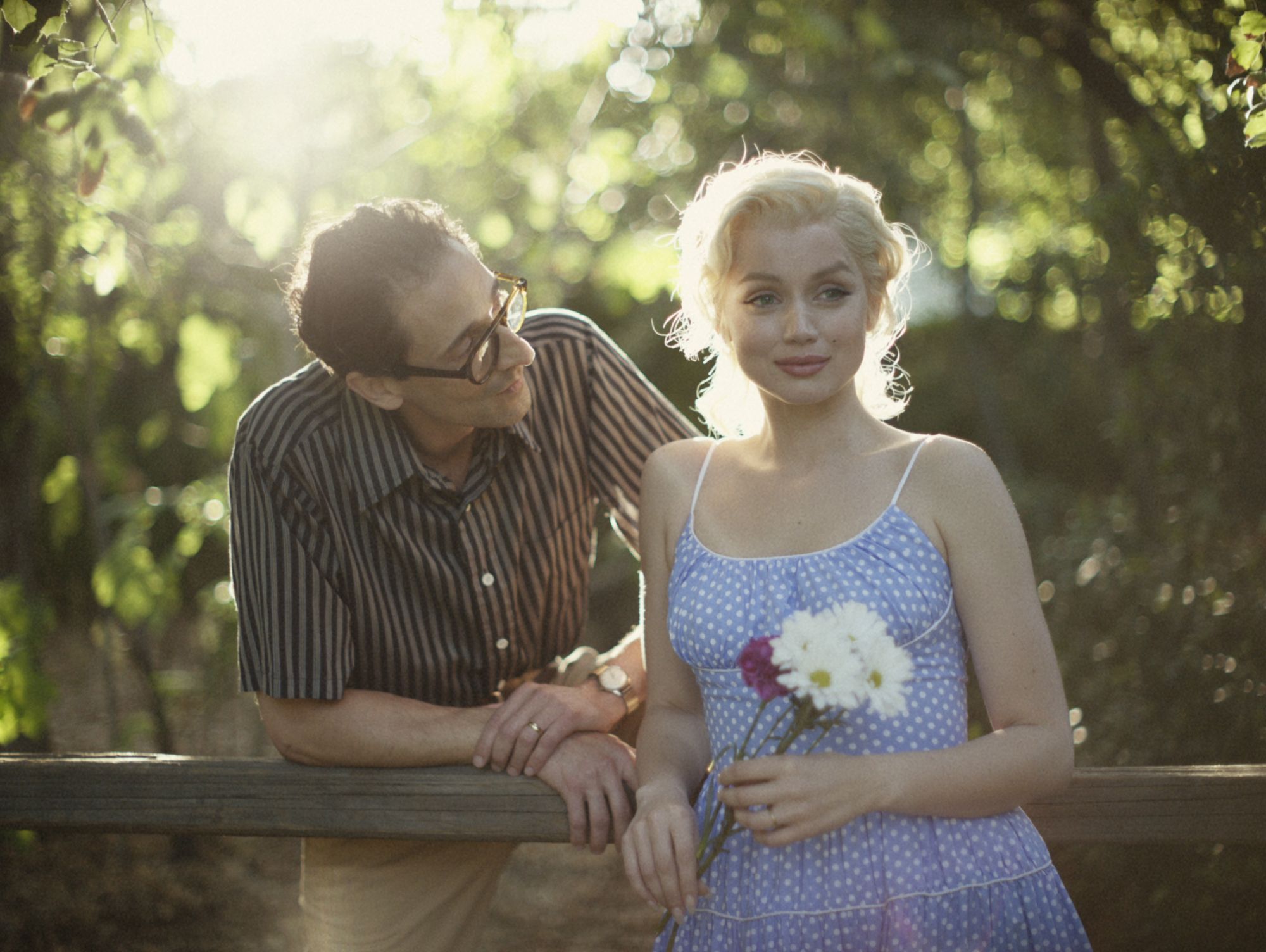
The switches from black and white to glorious technicolour seem to want to mirror her mood, with those “happier” moments filled with the vibrant red lips and pink satins that were so iconic to her. But its inconsistency towards the latter part of the film just feels slightly clumsy.
Blonde, besides its aesthetic and cast, misses the mark, seeking to undress yet another layer of the mythic Miss Monroe. As if it were somehow critical to reopen the long-healed cultural wound again, she is accordingly exploited for what feels like no real reason at all. As much as Dominik wishes to paint Monroe and Norma Jean as separate entities, in her life they came together in one very real woman, the lack of respect for whom is the most horrifying thing of all.
Featured Image: IMDB
Will you be watching yet another morbid adaptation of Marilyn Monroe's life?

